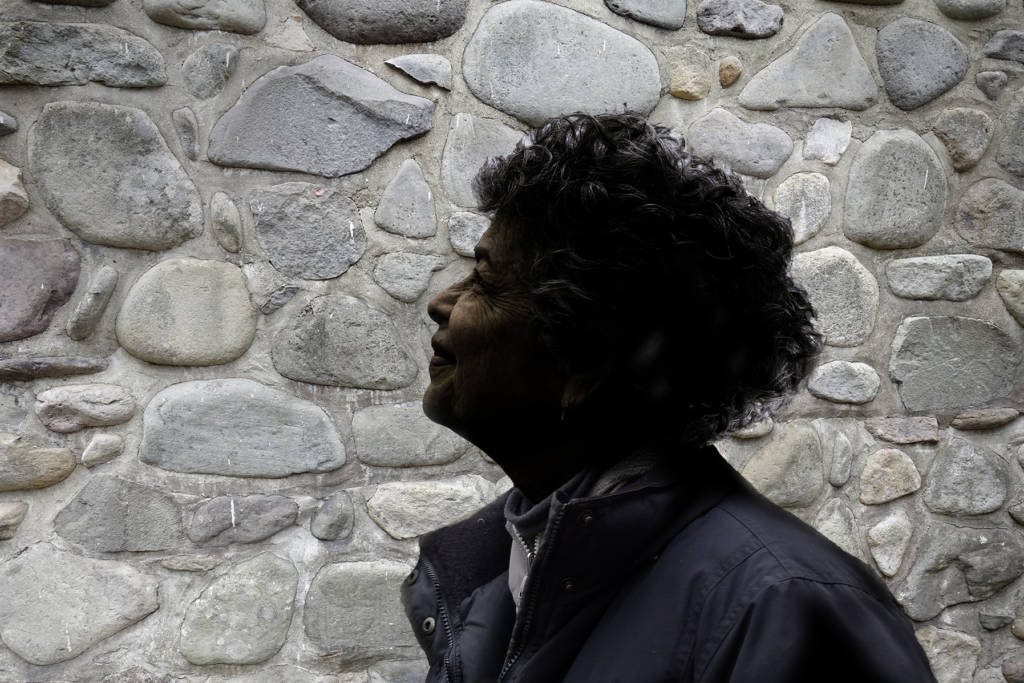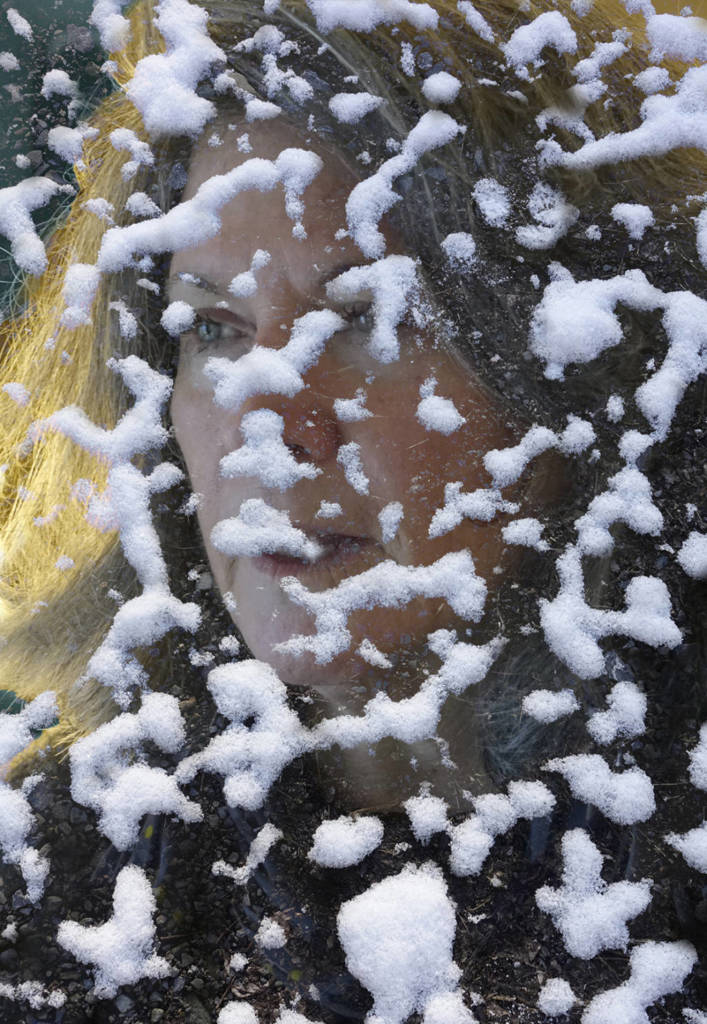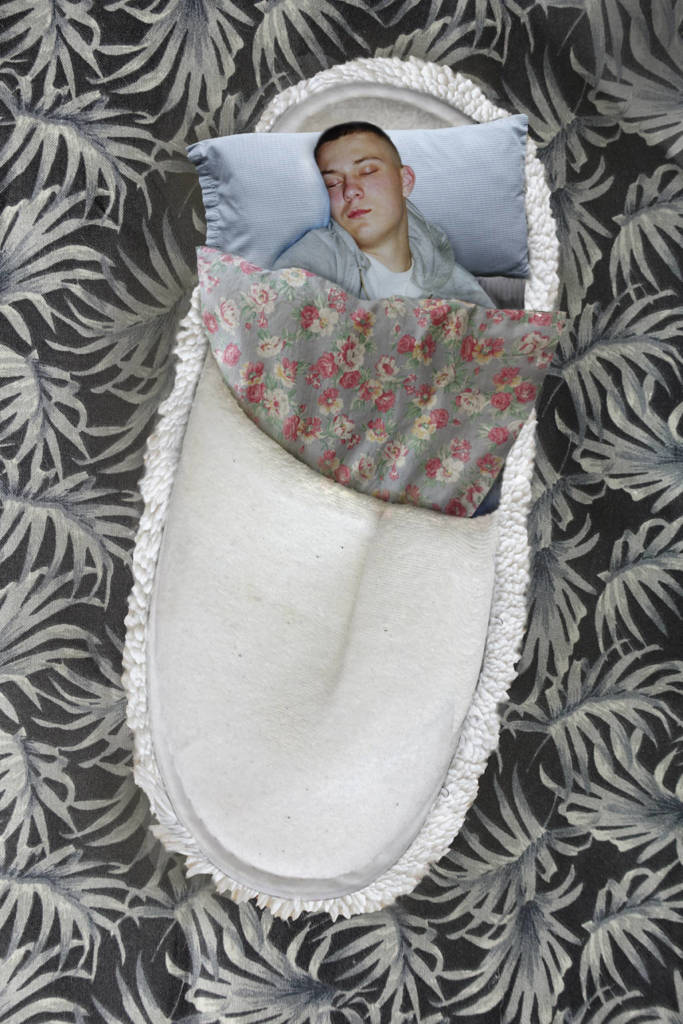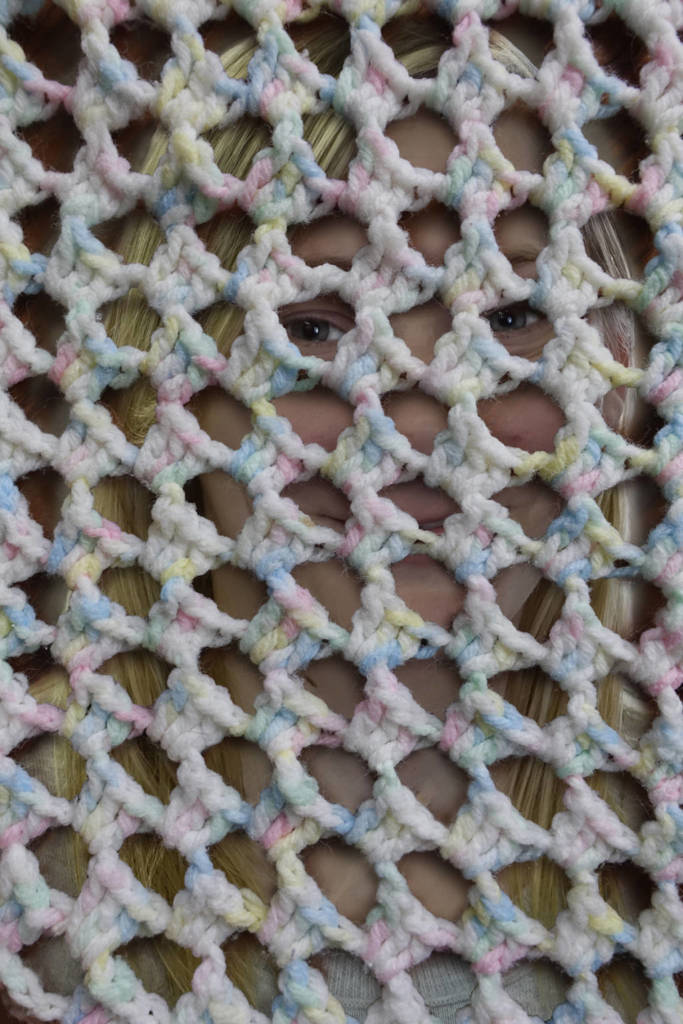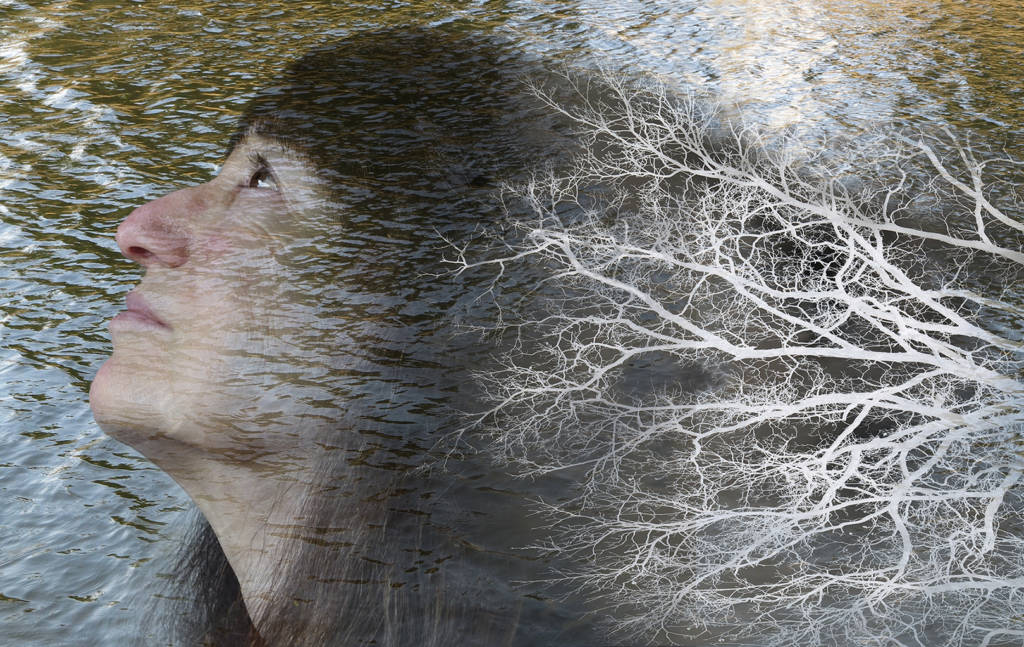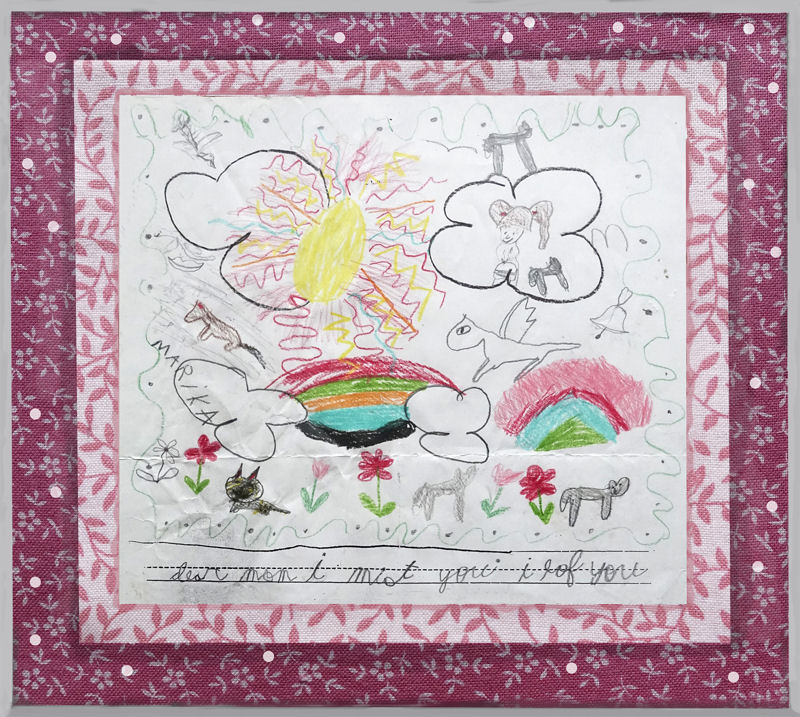 There are many different ways to hug and hold the ones you love.
There are many different ways to hug and hold the ones you love.
I had a daughter who loved to make books.
I have a mother who shows her love by knitting sweaters and crocheting blankets.
And then there’s my own thing: swaddling images of my beloved ones in ribbons of fluff and flowers, in Photoshop.
These three things all came together on Saturday before Mothers Day, when I was looking for the old baby sweaters my mother knit, to photograph and photo-shop them into softly wrapped layers around an old baby picture.
On Saturday, from way back on the top shelf of a closet, I pulled down a box labeled KIDS. There were no baby clothes inside but the box was filled with my kids’ artwork and school projects. Ones I don’t remember ever seeing. Back in the days when tiny crayoned booklets, Play-Dough creatures, and kids’ paintings turned up daily, I must have stashed away a bundle of kid-stuff without even looking at it. In the middle of the box I found a spring-bound book. On the first page was a colored-pencil picture that said, “to MOM.” Pages later, through tears, I came across this drawing that read, “dear mom I mist you I lof you.”
Marika’s books from her early years, full of bright renderings of cats, rabbits, angels and goddesses, were mostly made for me. For years, after she died, they kept popping up. In her attic loft. In my drawers. In corners of her room. Hidden away all over the house. I thought I’d already found them all. But Marika and I were both great at squirreling things away. Maybe next time I’m searching for some random thing, I’ll find another gift from her.
I still haven’t found the tiny beautiful sweaters my mother knit for my babies. They’re somewhere, carefully stowed away in a safe place. But something tells me this is all related to my need to envelope everyone and everything I love, and tuck them all snugly into cozy secure nests, in Photoshop.
How do you show your love? What do you keep that reminds you, you were loved?
